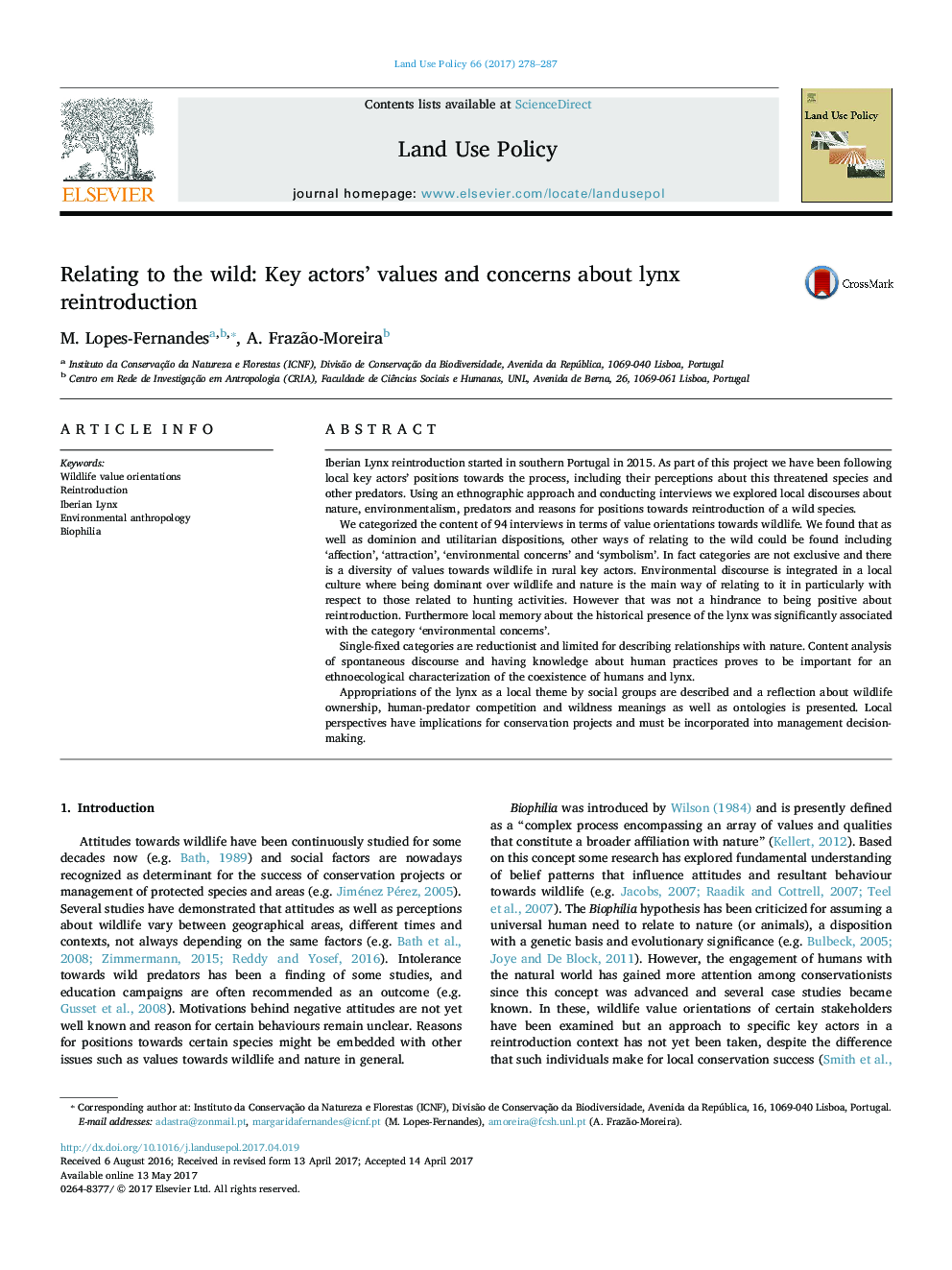| Article ID | Journal | Published Year | Pages | File Type |
|---|---|---|---|---|
| 6460934 | Land Use Policy | 2017 | 10 Pages |
â¢Orientation values towards wildlife are diverse and not exclusive in rural key actors.â¢'Environmental concerns' is associated to knowledge about lynx historical presence.â¢'Dominion' does not impede holding a positive opinion about lynx reintroduction.â¢Perceptions about 'wild' and 'predator' can be an obstacle to lynx conservation.â¢Single-fixed categories are reductionist to describe relationships with nature.
Iberian Lynx reintroduction started in southern Portugal in 2015. As part of this project we have been following local key actors' positions towards the process, including their perceptions about this threatened species and other predators. Using an ethnographic approach and conducting interviews we explored local discourses about nature, environmentalism, predators and reasons for positions towards reintroduction of a wild species.We categorized the content of 94 interviews in terms of value orientations towards wildlife. We found that as well as dominion and utilitarian dispositions, other ways of relating to the wild could be found including 'affection', 'attraction', 'environmental concerns' and 'symbolism'. In fact categories are not exclusive and there is a diversity of values towards wildlife in rural key actors. Environmental discourse is integrated in a local culture where being dominant over wildlife and nature is the main way of relating to it in particularly with respect to those related to hunting activities. However that was not a hindrance to being positive about reintroduction. Furthermore local memory about the historical presence of the lynx was significantly associated with the category 'environmental concerns'.Single-fixed categories are reductionist and limited for describing relationships with nature. Content analysis of spontaneous discourse and having knowledge about human practices proves to be important for an ethnoecological characterization of the coexistence of humans and lynx.Appropriations of the lynx as a local theme by social groups are described and a reflection about wildlife ownership, human-predator competition and wildness meanings as well as ontologies is presented. Local perspectives have implications for conservation projects and must be incorporated into management decision-making.
Graphical abstractDownload high-res image (144KB)Download full-size image
